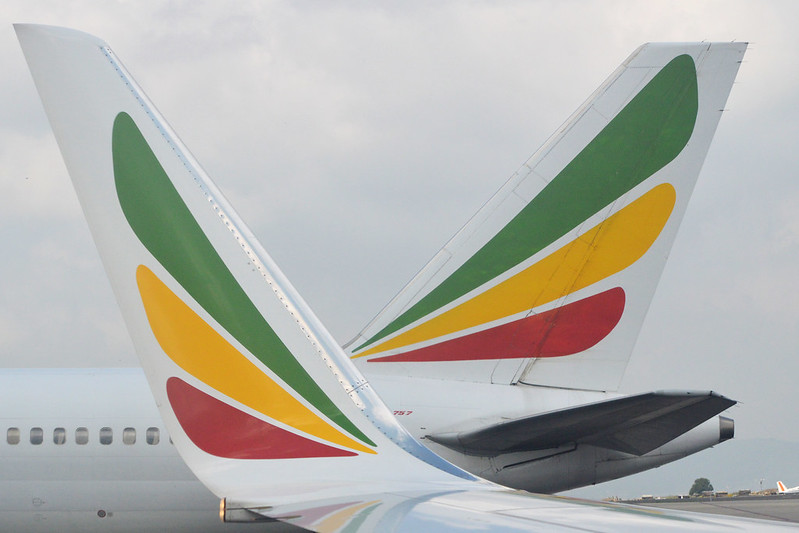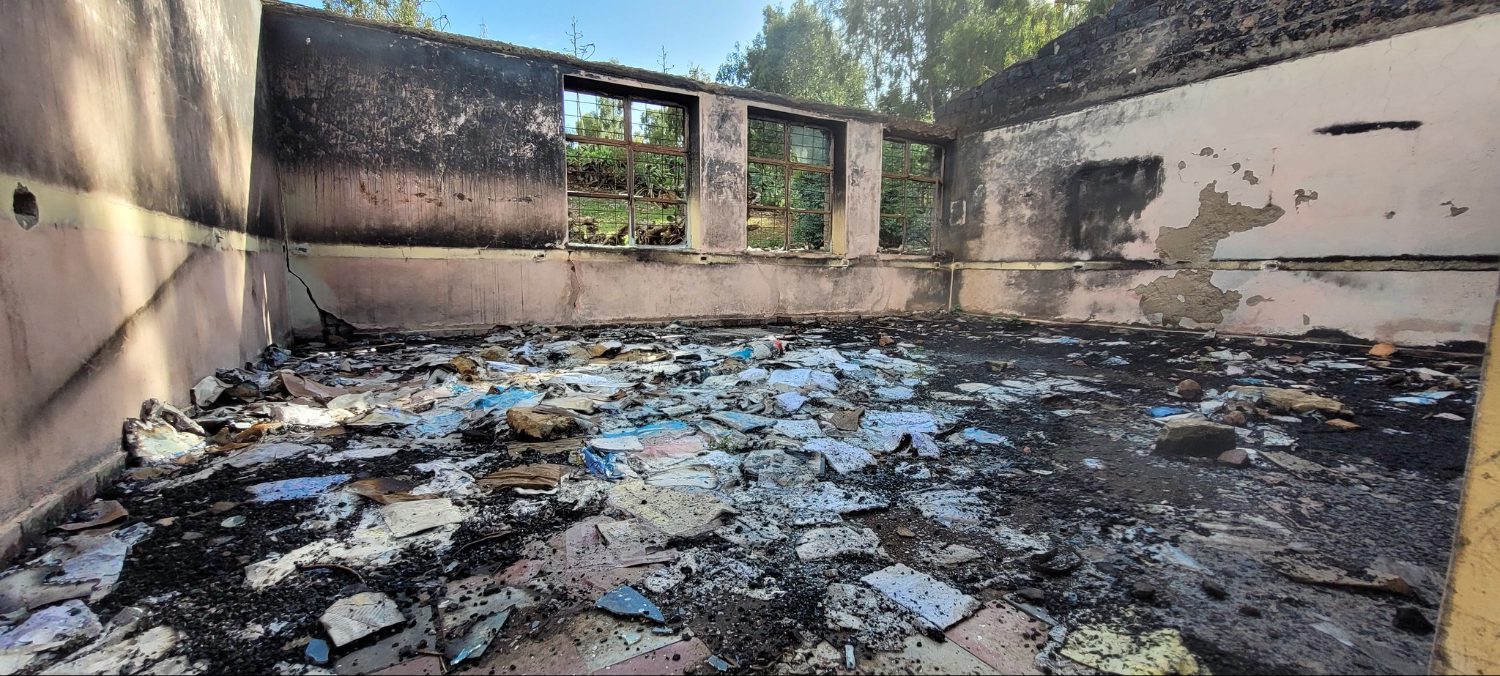Five months on, the Permanent Cessation of Hostilities between the Ethiopian Government and the Tigray forces is, for the most part, holding. Officially, the total blockade has been lifted. But the Ethiopian Government is micro-managing an ongoing siege.
Banks have opened but customers still cannot access their accounts. Withdrawals are limited as banks are not transferring sufficient cash from Addis Ababa to Tigray for their operations. Pensioners in Tigray have not received their pensions since before the war. It is now four months since the distribution of humanitarian aid stopped in most places as a result of the shortage of supplies. Most clinics and health centers are still out of action and those in operation do not have enough medical supplies.
Another example is the way that Ethiopian Airlines (EAL) and the National Intelligence and Security Service (NISS) are managing passengers and baggage to and from Tigray.
The Ethiopian government has committed all sorts of crimes in its war in Tigray since 2020. It used starvation and food as a weapon of war and blocked Tigray from any access to any sort of humanitarian assistance. It used all private and public institutions to this end, including churches, universities, and the media. Most public institutions including religious institutions cleansed themselves from Tigrayans.
Many of Ethiopia’s public institutions have not yet rectified these criminal practices and reversed their discriminatory stance. One of those institutions is Ethiopian Airlines.
The Ethiopian government used the country’s flagship commercial airline to shuttle weapons to and from neighboring Eritrea during the war. The Biden administration warned the Ethiopian authorities about violating the rules and regulations of IATA and using civilian aircraft for military purposes.
At the height of the conflict Tigrayan passengers were denied boarding on EAL’s outbound flights. Civil aviation authorities at Bole International airport (the hub for all international flights from and into the country) were demanding Ethiopian passengers show not only their passports but also their ID cards showing their ethnic origin and were denying all passengers of Tigrayan origin from boarding. Such a denial included high-profile businessmen in the country. Tewelde Gebremariam, the CEO of Ethiopian Airlines and a Tigrayan was reported to have been denied boarding a flight destined for Paris on November 8, 2020. The airline also removed from duty most of its Tigrayan pilots, hostesses, and ground technicians simply because of their ethnicity. Many left the airline for good and several of them were traumatized and spent months out of work. The airline has a long way to go to redress the sufferings of its Tigrayan staff.
Ethiopian Airlines, following the signing of the Pretoria Agreement, resumed its flights to Mekelle and subsequently to Shire, another destination in the region. However, the airline began putting restrictions on passengers. While passengers from Addis to Mekelle can fly freely, restriction associated with the age of passengers was introduced en route to Addis. All people between the age of 16 to 65 were restricted from flying to Addis. Any passenger in this age group must provide documentary evidence before flying, such as a medical certificate if the travel is medical-related or an official support letter if the travel is for business.
According to passengers, flights now exclude all people between the 16 and 65 age group. A Mekelle resident who purchased a ticket to fly to Addis Ababa told Addis standard that she was forced to return after being denied entry to Mekelle’s Alula Aba-nega International Airport. Tibletse, a professional in her early thirties was turned back from the airport and was unable to fly. On January 9 this year, Mihret, reported the following on her Facebook account: “Earlier this morning, I was returned back from Alula Aba-nega international airport in Mekelle by an employee of EAL denied to board EAL flight to Addis. He told me that the government had issued a directive for young people to travel out of Mekelle Tigrai unless that person has a medical certificate, a round-trip ticket, and/or the person is proven to accompany children or the elderly….”
Yemane travelled from Addis to Mekelle on March 24. At his arrival to Alula Aba-nega airport, he was told to come back to the airport the next day as his luggage had not arrived with him. Hadash and Semaynesh, two women relatives arrived in Mekelle from Addis on April 1, and both were informed that their bags would arrive a day later. Haddash was traveling with her three-year-old child and she only had her valuables on hand while the rest including the clothes and materials, she used for her infant were loaded in her luggage. Her child remained uncomfortable until her luggage arrived. I asked Ethiopian airlines staff at the airport and they told me that this is the norm rather than an exception.
An EAL employee, who wanted to stay anonymous, informed a passenger who lost her luggage that the airlines hands over bags to the National Intelligence and Security Services (NISS) for security checkup once it completes checking-in passengers to Mekelle and Shire. This is not the standard practice for all flights but only imposed for Tigray flights. The NISS employees usually take time to search the luggage and usually return them to the airline after the flight has departed. It is for this reason, that EAL at the arrival of its flights to Mekelle usually asks its passengers to come back the next day to collect their luggage. He informed her that EAL is facing an unprecedented amount of lost baggage as a result. According to him, in the two months of January and February alone, 28 luggage pieces were lost and the airline was forced to pay compensation to the passengers. He further informed her that the number of complaints the airline receives from passengers to Mekelle and Shire on the loss of valuables is uncountable and there is little the airline workers can do on the ground unless the airline negotiates with the authorities of NISS to streamline this process.
Nowadays, it has become a standard practice that passengers fill their carry-on bags with their valuables rather than the immediate things they need in flight and on their arrival. Travelling without baggage and waiting for two days to receive them has now become normal. Passengers need to go to the airport and check on the arrival of their luggage. The ground workers of EAL do not have any control on when the bags are sent and therefore have little to do to help the passengers except handing their bags as they arrive.
The problem with the airline also extends to charging the passengers exorbitant fares. Hadash and Semaynesh both paid 12,000 Birr for a roundtrip ticket. The outbound trip to Addis is particularly expensive. A passenger who returned from Addis informed me that he paid 7,165 Birr (137 USD) for a one-way ticket to Addis and another 4700 ETB (90 USD) for a ticket back to Mekelle. One of the reasons for the hike of the price is the absence of an alternative transport out of Tigray. Flight tickets for EAL are also not sold at their previous sales offices in the city but at the airport, which is seven kilometers out of the city. The exploitation and harassment of Tigrayans doesn’t end there. Passengers who travelled to Addis are interrogated one-by-one by NISS agents on their arrival. They are asked on what business brought them to the capital, where they will be staying and when they will return to Tigray. They are made to feel as if they are a security threat.
The road to Addis has not yet opened for bus transport. Trucks for transport of goods pass via the Amhara and Afar regions paying exorbitant amount of money to armed vigilantes to pass. The Amhara armed Fano have set up check points along the route from Mekelle-Dessie-Addis and levy taxes on each truck passing. Similarly, there are several check points along the Afar Road to Mekelle controlled by Afar militia and police who similarly tax trucks. The amount of the taxes is determined by how much money the group controlling the check point wants and therefore varies between 50,000 to 100,000 Birr per truck per trip. For this reason, flight by EAL is the only safe ways of getting into and out of Tigray. Ethiopian Airlines is using this difficult situation to extort exorbitant fares.
Meanwhile, the whole of Western Tigray and parts of Southern Tigray are still occupied by the Amhara militia with a covert support of the Amhara regional state and parts of North-Western and Eastern Tigray are still under Eritrean Defense Forces occupation. Over two million internally displaced persons from these places are still waiting to return while the planting season is only few weeks away—further delay could only mean another year of relying on food ration distributions.. Furthermore, the Amhara regional state is resettling thousands of its own residents in the areas it claims, allocating houses and farmland of the displaced to the new settlers. This is forcibly imposing a new demography on these areas.
The road to peace begins step by step. One of the steps is the resumption of public services to a pre-war condition. Ethiopian Airlines, the civil aviation authority, and the National Intelligence and Security Services should begin redressing their crimes by at least serving flight destinations to Tigray equally with other destinations. It is only when they see this practice that Tigrayans may begin to rebuild trust in these public institutions, or else they will see them as instruments of ongoing repression and suffering.
Photo: Ethiopian Airlines winglet, Alan Wilson | Flickr (CC BY-SA 2.0)



